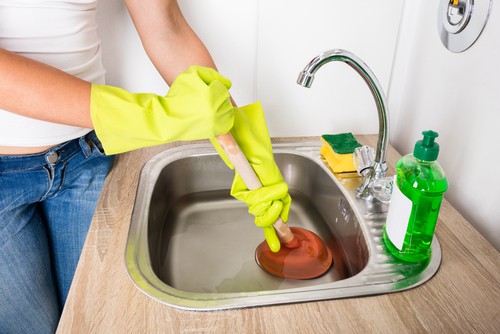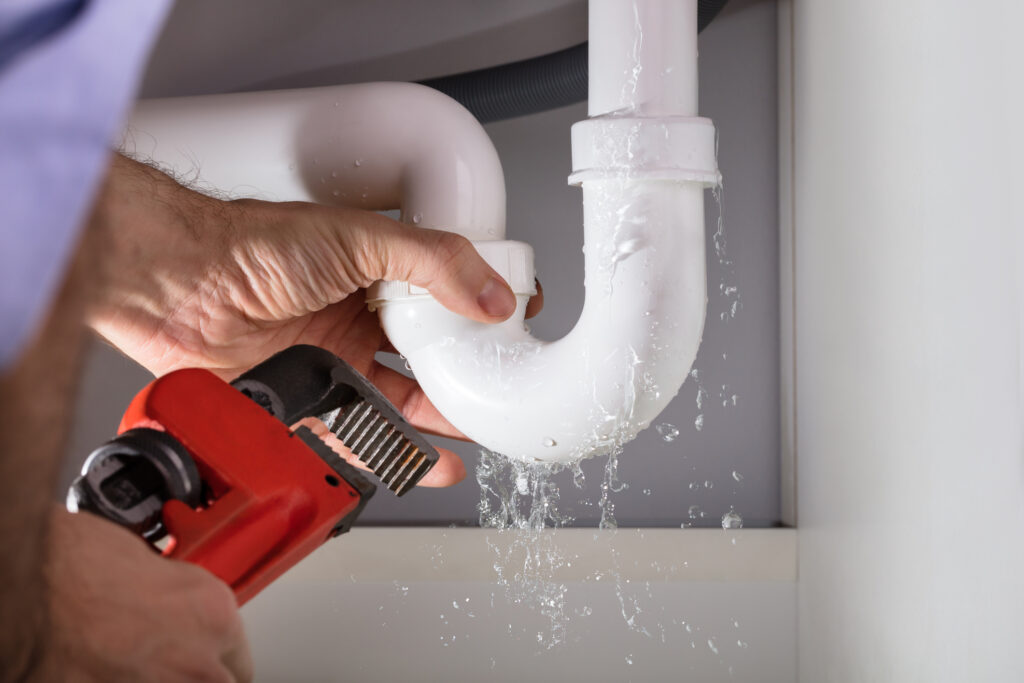Ways to Manage Urgent Pipe Problems with Quick Solutions Until Help Arrives
Ways to Manage Urgent Pipe Problems with Quick Solutions Until Help Arrives
Blog Article
The content below pertaining to What to Do While Waiting for an Emergency Plumber is especially attention-grabbing. Don't bypass it.

Plumbing emergencies can strike any time, triggering tension and potential damages to your home. Whether it's a burst pipeline, a stopped up drain, or a dripping tap, knowing just how to manage the scenario up until a professional plumbing professional arrives can conserve you from additional complications. This write-up supplies important emergency situation pipes tips to assist you mitigate damage and gain back control during a pipes situation.
Turn Off the Water System
The first step in any type of pipes emergency situation is to shut off the water system. For localized concerns, such as a leaking tap or toilet, switch off the valve near the component. In the case of a significant leakage or burst pipe, situate your home's main water shut-off valve and transform it off immediately. Knowing the place of these shutoffs beforehand can save valuable time during an emergency.
Address Little Leakages with Short-lived Fixes
Little leakages can quickly end up being substantial problems if left uncontrolled. Use these temporary fixes up until expert assistance shows up:
While these repairs aren't permanent, they can help reduce water loss and damage.
Unclog Drains Safely
A stopped up drainpipe can be an aggravating and messy issue. Below's exactly how to tackle it:
If these approaches don't work, stay clear of utilizing excessive force, as it might intensify the blockage.
Take Care Of Overflowing Toilets
An overruning commode can trigger instant chaos. Below's what you must do:
Turn off Your Water Heater
In certain emergency situations, such as a ruptured pipe, it's important to turn off your hot water heater. This stops overheating or damages to the system when water stops moving. Shut off the power supply to the water heater (electrical or gas) and let it cool to prevent potential dangers.
Briefly Quit a Ruptured Pipeline
A ruptured pipe can bring about considerable water damage in mins. To reduce the concern:
Call a professional plumbing professional right away to resolve the problem completely.
Handle Frozen Water Lines Carefully
In chillier environments, frozen pipes are an usual emergency. If you presume an icy pipe:
Stop Further Damage
Taking fast action to decrease damage can save you money and time in the long run. Here's how:
. Have an Emergency Pipes Package
Prepare a standard plumbing emergency set to manage small concerns properly. Your kit should include:
Having these tools on hand can make a significant difference in your ability to manage emergencies.
Know When to Call a Professional.
While quick fixes can help temporarily, certain plumbing issues call for instant expert attention. Call a plumber if:.
Promptly speaking to an expert ensures the concern is fixed appropriately and avoids further issues.
Conclusion.
Plumbing emergency situations can be overwhelming, but with the ideal knowledge and devices, you can handle the scenario efficiently until aid gets here. By shutting off the supply of water, dealing with small leakages, and making use of momentary repairs, you can decrease damage and keep your home safe. Keep in mind, these tips are short-lived options; always get in touch with a certified plumber to manage the root cause of the trouble. Preparation and quick reasoning are your finest allies in any pipes emergency.
8 Helpful Tips for Managing Plumbing Emergencies at Home
If your plumbing system hasn’t failed once, wait for it because almost everyone has a story to tell. Sometimes, it could be simple emergencies such as a leaking pipe, a blocked cistern, or even a big burst pipe. In situations like this, you need to have some handy tips to save you some money and from possible damages.
Take care of minor issues early.
Sometimes, you could have avoided an emergency by taking proactive measures while it was still early. Some major plumbing emergencies can be a result of an ignored minor issue. We recommend that you have items like plumbing tapes and other related items. A plumbing tape can allow you to manage minor leaks before the plumber arrives.
Cut off the water supply.
This tip is essential in almost any type of leakage problem. For problems like minor leakages in the toilet or kitchen, turn off the supply that takes water to the affected pipes. If the leakage is a major pipe, you must shut off the supply valve to the entire building. This will help you avoid flooding your home and neighbors if you share a flat.
Know your plumbing system
Folks typically move into a new apartment without understanding the water supply around the building. This can prove disastrous if a water emergency arises and the plumber is far away. The previous tip will prove useless if you don’t practice this one. More importantly, know where your water shut-off valve is located – you’ll need that knowledge to prevent potential home floods.
Have some common handy tools
There are lots of plumbing emergencies that you can handle without hiring a plumber. That’s why you must keep some tools available always. Some tools that you can use to fix simple plumbing emergencies easily include plumbing tapes, screwdrivers, thread seal tapes, plungers, pliers, tape measures, and rubber gloves.
Insulate your pipes from cold
You’ll save yourself from many plumbing expenses if you protect your water pipes from the cold. This is because of the harmful effects that cold weather can have on your pipes. During winter, your pipes can burst from being overly expected to freezing temperatures. So, make sure insulators are there to keep the pipes working correctly.
Avoid practices that will clog your toilet.
Many people indulge in practices that can damage the plumbing system of the entire building. One of these is when they use their toilet to dispose-off garbage. They flush all kinds of things, such as paper towels, bandages, hairs, female sanitary products, etc., down the toilet. This will block your toilet in the long run, incurring unnecessary expenditures. Dump such waste in the trash instead.
Check your dials regularly.
Sometimes, there could be leakages in your home without noticing them in time. So, constantly monitor your water meter dial. If the dial is reading when there is nobody using water, this is an indicator that there is leaking. Check for leaks immediately. Call a plumber as soon as possible if you can’t find any.
https://www.constructionplacements.com/8-helpful-tips-for-managing-plumbing-emergencies-at-home/

As a fervent person who reads about Expert Tips for Managing a Plumbing Emergency Until Help Arrives, I figured sharing that section was beneficial. Sharing is nice. Helping people is fun. I am grateful for being here. Kindly stop by our blog back soon.
Contact Us Now Report this page